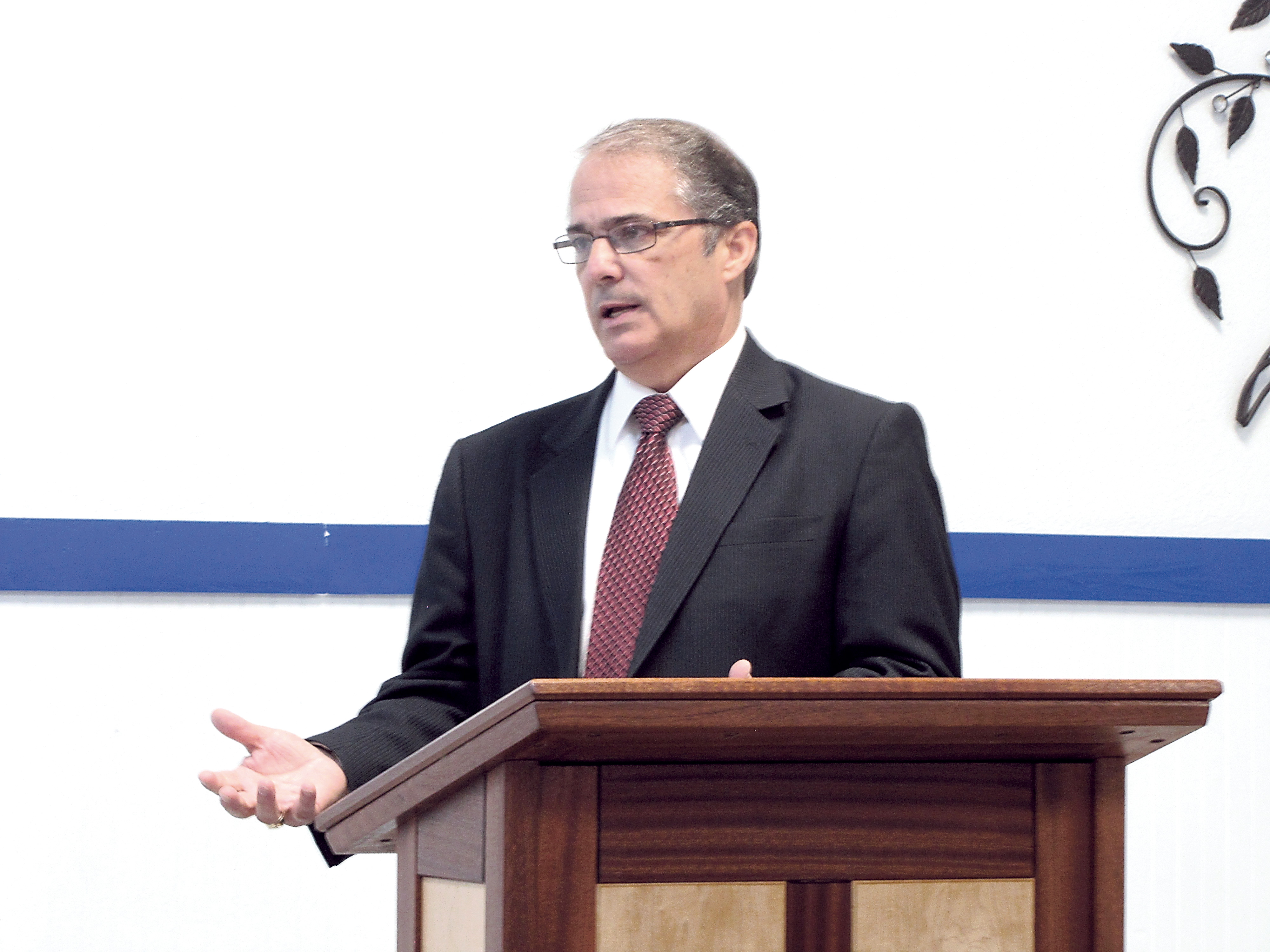FORKS — Lt. Gov. Brad Owen blamed the state budget impasse on partisan politics and discussed timber and tourism with those at a Forks Chamber of Commerce meeting Wednesday.
Owen spoke to about 50 people at JT’s Sweet Stuffs in Forks.
“The greatest impediment to good government is partisan politics,” said Owen, who serves as president of the state Senate.
Unwillingness to work together is preventing otherwise good politicians from making compromises that will allow the government to work, he said.
“If there were no labels, we wouldn’t be in special session now,” he said.
A state government shutdown looms if a budget isn’t signed into law before midnight June 30, when the current two-year budget ends.
Budget negotiators and leaders have been meeting with Gov. Jay Inslee, sometimes daily, since the second special session started at the end of last month, according to The Associated Press.
Owen said the current impasse is about the source of funds to pay for increases in school funding ordered by the state Supreme Court in the McCleary decision.
That decision — named for Stephanie McCleary, Chimacum schools’ human resources director and a Sequim native, who was the lawsuit’s chief plaintiff — said the state must fund basic education, now mostly supported by local tax levies, by 2012.
Last fall, Supreme Court justices found legislators in contempt for their failure to meet their order and gave them until the end of the current legislative session to show progress or face sanctions.
Owen said that on one side, there is a desire to create new revenue sources, while the other side is seeking places to cut funding to other programs and shift it to education.
He said that after 40 years’ experience in state government, the most effective government he has seen had a Republican-controlled Legislature and Democratic-controlled administration.
At the time, both sides were willing to work with each other to create a state budget that worked, he said.
Owen said the general political climate has changed so that members of both sides are reluctant to even talk to “the enemy.”
“We need to get together. We need to talk together,” he said.
He was asked by a member of the audience if the state would continue to raise fees and taxes.
“Where can we cut?” Owen asked.
Currently, the budget is about 60 percent schools and 40 percent everything else, he said.
“A big part is protected by mandates or court cases,” he said.
Owen also was asked if correcting logging arrearage would help with the state education budget.
The 247 million board feet of Department of Natural Resources-owned Olympic-region timber was planned to be sold from 2004 to 2014 but wasn’t — leaving what is known in the timber industry as “arrearage.”
Peninsula officials have said that timber would have been enough to keep shuttered mills open for years.
Selling that timber would help the area economy, but since timber funds are legally limited to being used to build new schools and are barred from use in school operations, it’s not a factor in the current budget issue, Owen said.
It would take a state constitutional amendment to change the funding rules, a measure he said would be highly unlikely to get support in the Seattle-Tacoma corridor, where most voters live.
Owen also was asked about more state investment in tourism promotion, noting the Forks experience with the Twilight phenomenon that has brought in years’ worth of tourism dollars to the community.
“It’s a question of where the money would come from,” Owen said.
While it would ultimately increase the income for the state, taking that money from health or education is a difficult sell for legislators, he said.
________
Reporter Arwyn Rice can be reached at 360-452-2345, ext. 5070, or at arwyn.rice@peninsuladailynews.com.

